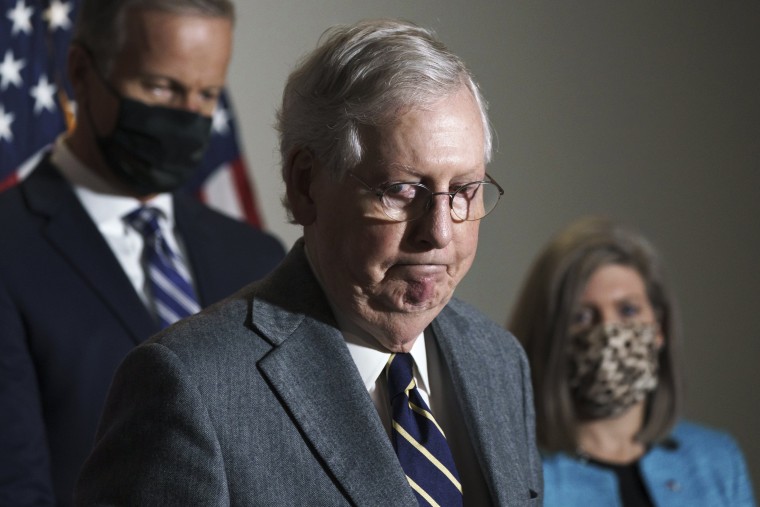For generations, American politics has been defined by seemingly unshakable partnerships such as the marriage between corporate America and the Republican Party. This year, however, that relationship is being tested in unfamiliar ways.
The Hill reported yesterday, for example, that the GOP's newest debt-ceiling crisis is pitting the nation's business leaders against their ostensible allies on Capitol Hill.
The risky strategy pits Republicans against corporate America, whose leaders are urging Congress to raise or suspend the debt limit as soon as possible given the likely financial turmoil that would ensue.... Republican opposition to raising the debt limit underscores the divide between GOP lawmakers and corporate America that has only grown in recent years.
To be sure, private-sector leaders aren't exactly prepared to tie the knot with Democrats. President Joe Biden and his congressional allies support higher corporate tax rates, labor unions, environmental safeguards, and consumer protections — each of which undermine business leaders' bottom line.
But if you're under the impression that corporate America is increasingly at odds with Republicans — on a wide range of issues — it's not your imagination.
Circling back to our earlier coverage, it was in the spring when many Republican-led states began imposing new voting restrictions, prompting criticisms from many prominent American businesses. Many in the party responded by threatening major corporations with retaliatory policy measures if they said anything negative in public about the GOP's voter-suppression campaign.
In April, Senate Republican Leader Mitch McConnell went so far as to say that business "will invite serious consequences" if they stand up for voting rights in ways the GOP doesn't like.
In the months that followed, corporate leaders and Republican leaders also found themselves on opposite sides on Covid-19 vaccines and Texas' abortion ban.
Earlier this month, when some companies considered cooperating with the bipartisan congressional investigation, House Minority Leader Kevin McCarthy threatened to retaliate against businesses that provided information the GOP prefers to keep secret. "A Republican majority will not forget," McCarthy vowed.
This week, the U.S. Chamber of Commerce also pressed House Republicans to support the bipartisan infrastructure package pending in the lower chamber — right around the time House GOP leaders demanded that their members vote against it.
What Republicans seem to envision is a model in which corporate America is the GOP's silent partner. In April, for example, McConnell appeared at a press conference and effectively asked business leaders to shut up.
"My advice to the corporate CEOs of America is to stay out of politics," the minority leader said.
McConnell soon after walked that back, probably because he wanted the corporate CEOs of America to keep sending Republicans generous campaign checks. But therein lies the point: GOP leaders expect the private sector to help finance Republican campaigns, and in exchange, the party will protect and prioritize corporate tax rates at all costs.
But on many other issues, the GOP expects corporate America to be seen and not heard.

